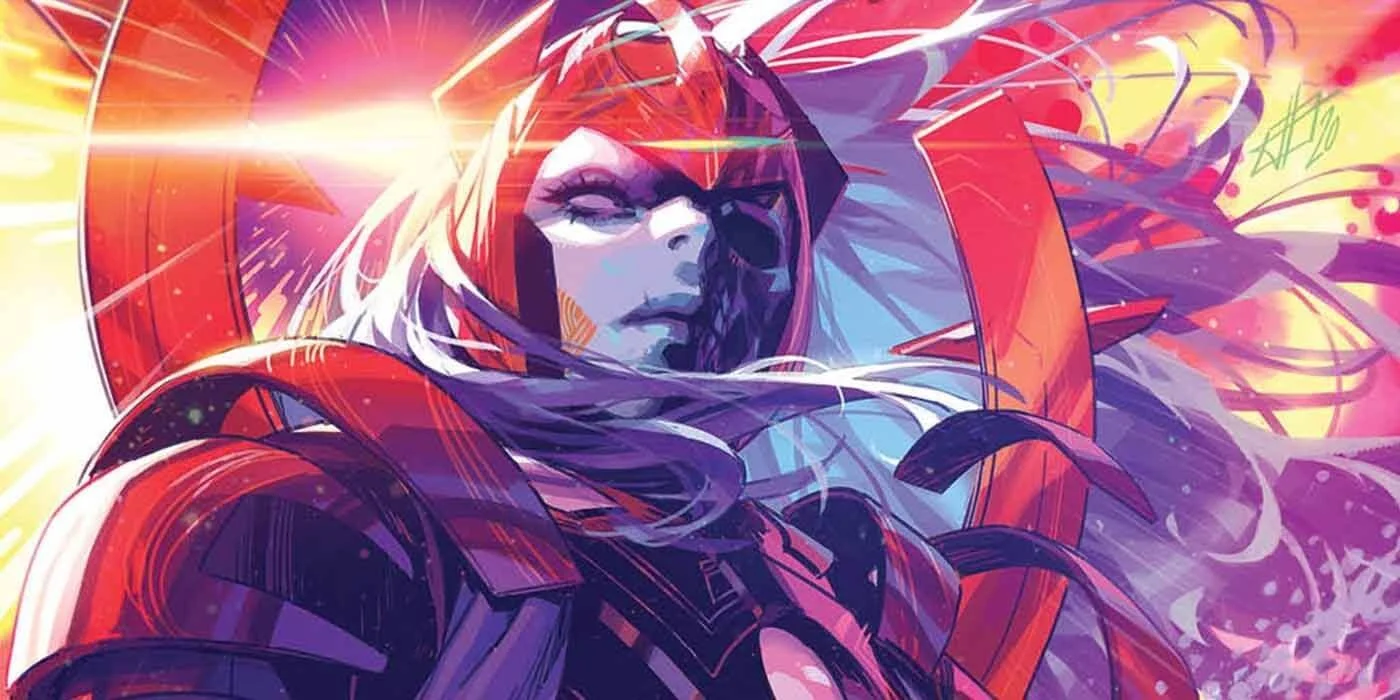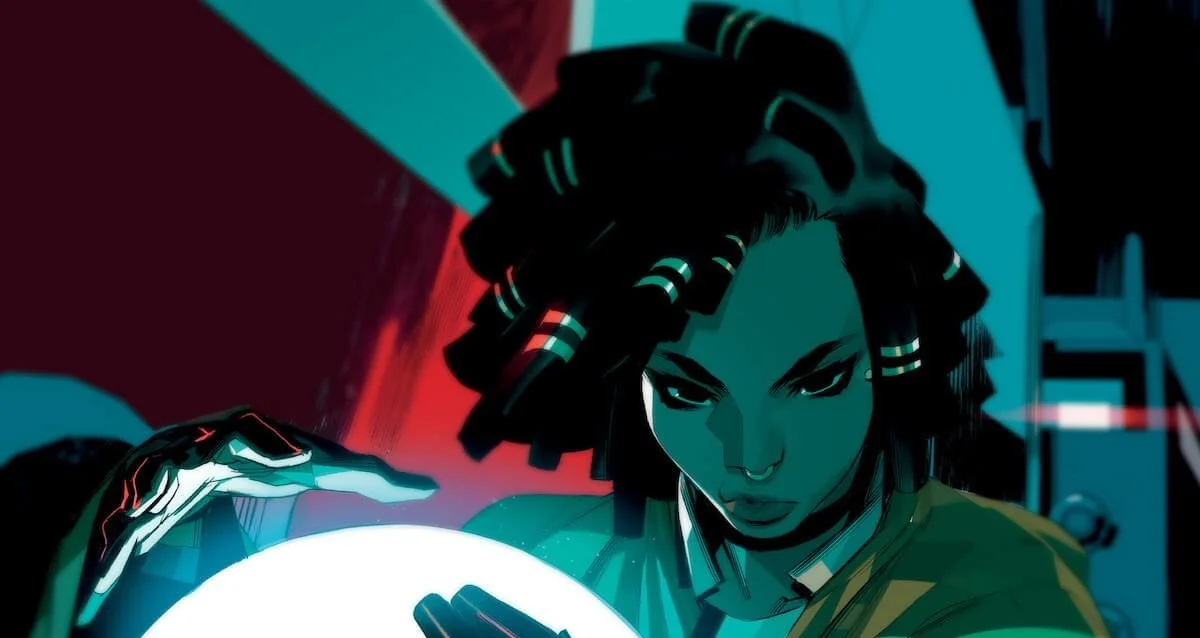Writer: Al Ewing / Penciller & Colourist: Simone DiMeo / Colour Assists: Mariasara Miotti / Letterer: AndWorld Design / Logo Design: Scott Newman Designer: Grace Park / Editors: Eric Harburn and Gwen Waller / Boom! Studios.
Buy Boom comics here and support The Comic Crush.
2nd September 2020)
The Pitch: Captain Malik and the crew of the Vihaan II harvest resources from the giant corpses of alien gods found on the edge of human space. While other autopsy ships race to salvage the meat, minerals, and metals that sustain the human race, Malik sees an opportunity to finally break free from this system but his obsession with the gods will push his crew into danger at the darkest reaches of space—unless the rogue agent on their trail can stop them first…
Starting with a flashback for one of its characters but a flashforward for us to the year 2323, one wonders if this is like seeing life – even lives as small and incidental as those of us in the great play that is human existence – as God see us? Where time is one, neither forward nor back but happing at once, existing as a singular parallel narrative? I don't know if this was on the minds of the creators as they made this book? We Only Find Them... is a rare beast in comics today. A book where the first issue isn't packed with incident yet manages to deliver on the promise of the pitch, in all its awe-inspiring wonder, yet only really serves as a prelude. This normally might be a bad thing, but whilst incident is not a high priority in this issue, ideas are. And this thing is packed with ideas.
YOU NEVER GET THE SENSE ANYONE IN THE STORY BELIEVES IN GODS, DESPITE KNOWING THEY EXIST
If you're expecting some kind of workaday Alien-style 'truckers in space' effervescence, I'm not sure you'll find it here. Although there are dystopian notions that seem to have found their way into the narrative, chiefly the all-knowing corporate overseer element, We Only Find Them... is a clean, surgical book. The technology in the story works most of the time and the crew of the Vihaan II feels unified, supportive. A refreshing caveat in today's science fiction, this shifts the conflict to one between the haves and have nots. Those that are allowed to strip Gods of their useful flesh and those that can't. This is a universe that has relative poverty and the crime that brings, but our crew are seemingly observers of this, rather than participants. Instead what we get is the corporate presence as a metaphor for the divine one. This is a universe that knows Gods exist, that strips their dead bodies for precious minerals and substances, but somehow never gives you the sense that anyone in the story believes in Gods of their own. Possibly the first Agnostic believers in fiction. The ships these scavengers fly are called Autopsy ships, which implies investigation or at the very least, curiosity. But they seem un-awed by the bodies of the Gods, working at a distance, remotely. Makes me wonder if they're the type of people who would walk into a church and resist the urge to touch the stones that make the walls, something that I can never do, myself.
The corporate overseers of the story listen to every word spoken on the ships that mine the Gods – all except for the few minutes that the ships spend at warp, speeding to and from the sites of these God falls. I don't know if you're religious, but how much time do you spend imagining your Gods are listening to your every word? Does the thought they might fill you with dread or comfort? And how would you feel if you knew for certain that they stopped, even for a few minutes? The crew of The Vihaan II use this time to plot something truly audacious within the world of the story. I won't reveal it here as I feel this was a mic-drop moment of forward propulsion for what's to come in the series. Ewing and DiMeo have given us an awe-inspiring book here. It has scale, scope and an awesome hook. It's a neat twist of fate that in trying to break free of 'the system' of rules and regulations – and the potential violence that punishes those that try – would require using Gods, themselves the genesis of belief systems and rules. I have a feeling this will be a book of intelligent, meaningful inversions and genuine ideas.
when we first see the body of a god, I daresay i won’t be the only one hearing whalesong
Ewing uses a nautical underpinning to the language spoken on the ship that indicates legacy and is a fantastic choice considering how superstitious sailors were said to be. That nautical sense colours everything that follows in the issue. When we first see the prone lifeless body of the God floating in space, I dare say I won't be the only one who hears the resonating pitch of whale song. The narration feels like the voice of a God up there watching, seeing the tiny drama play out and staying remote and cold. DiMeo's art, whether giving form to science or divinity is beautiful. The colours (created with Mariasara Miotti) are intoxicating and vivid. AndWorld's letters give you the sense of both an awesome bass echoing through the stars, telling you this story and the clipped, rhythmic sound of the scavengers and their onboard lexicon. We Only Find Them When They're Dead is a book that could instigate many emotions. But I expect the ones we'll become most acquainted with is a holy dread, putting us on our knees to gaze up at the stars and feel something for the first time in years.
Buy Boom comics here and support The Comic Crush. Buy the trade paperback of volume one at Gosh!



